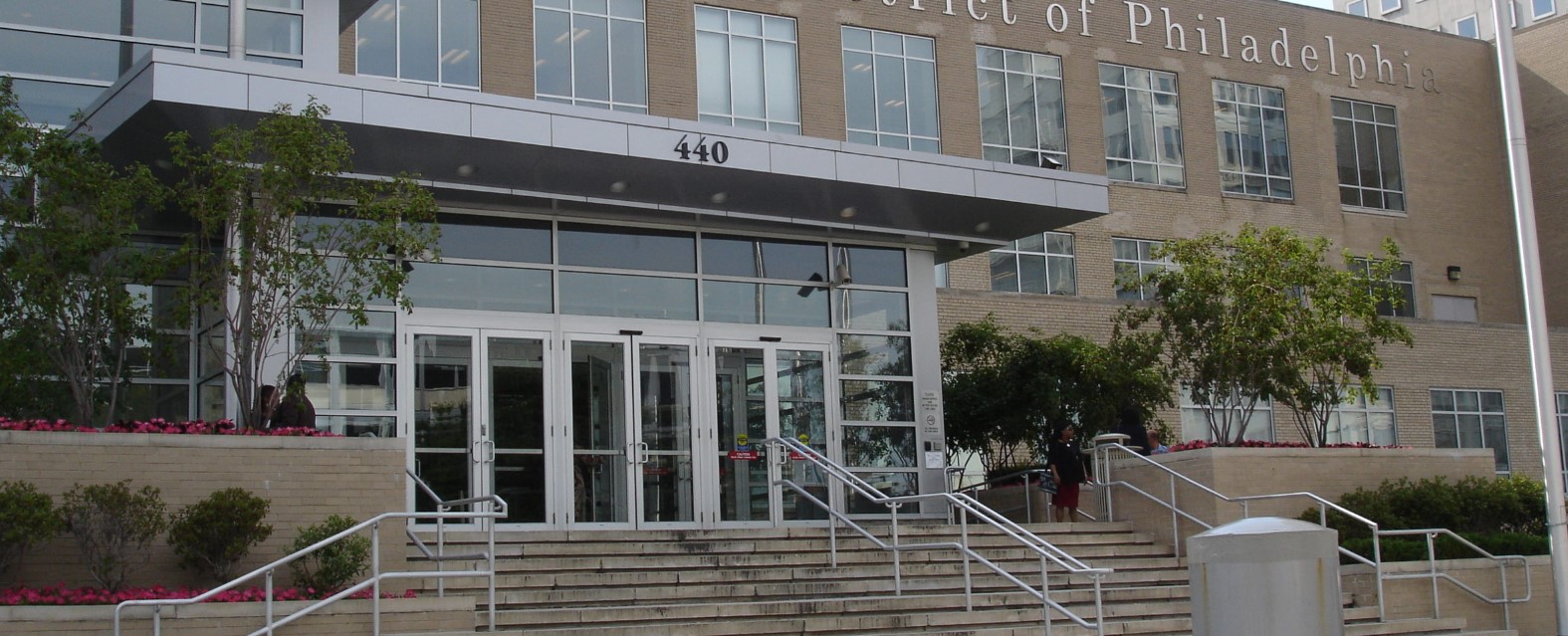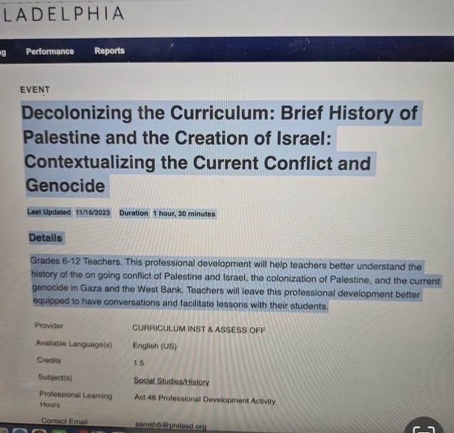Philadelphia School District Walks Back Professional Development Course on the So-Called ‘Genocide’ in Gaza

(This article first appeared in Broad + Liberty)
The School District of Philadelphia says it is not offering teachers a professional development course on the history of the Israeli-Palestinian conflict after a screenshot detailing such an offering was widely circulated on social media sites earlier this week.
The district’s careful and terse wording in response to Broad + Liberty’s request for comment did not make clear whether the course was axed in response to political concerns, or if the district had ever intended for such a course to be available.
The screenshot shows the professional development “event” carried the title, “Decolonizing the Curriculum: Brief History of Palestine and the Creation of Israel: Contextualizing the Current Conflict and Genocide.”
The course description said, “This professional development will help teachers better understand the history of the on going [sic] conflict of Palestine and Israel, the colonization of Palestine, and the current genocide in Gaza and the West Bank,” wrongly implying that Israel was carrying out a genocide as opposed to being the target of one.

“Yesterday [Monday], the title of a professional development training was posted to the District’s internal portal for employees,” Monique Braxton, the district’s deputy chief of communications, said in an email. “The title was not an accurate depiction of the Districts position relating to the Middle East and was immediately removed.”
Broad + Liberty followed up by asking if the seminar was still available, or if the only issue was re-wording the course title and description.
“The professional development course isn’t being offered,” Braxton said in response.
The controversy comes as the current Israel-Hamas war nears its eighth week.
The Jewish Federation of Greater Philadelphia was quick to condemn the language, even if the course was not an offering.
“The Jewish Federation of Greater Philadelphia strongly condemns the anti-Israel language used to describe a School District of Philadelphia professional development course on the history of the Israeli-Palestinian conflict,” said Jason Holtzman, director of the Federation’s community relations council.
“While we recognize the district’s efforts to remove this course from its portal, misinformation posted on the web has a permanent footprint that emboldens antisemitic and anti-Israel rhetoric. We urge the district to firmly denounce the problematic nature of the language used in this course to make it clear that they are committed to building a safe schooling environment for Jewish students and teachers,” he concluded.
The controversy emerges as rhetoric, particularly by educators at all levels, has been scrutinized in the wake of the October 7 surprise terror attacks by Hamas.
Earlier this month, Colonial School District board member Dr. Jamina Clay resigned after public outcry over a social media post.
Dr. Clay, however, “will continue to serve as assistant superintendent for the School District of Philadelphia, where she oversees ten schools,” according to 6 ABC.
“The Board of Education Policy 320 states that ‘employees are protected by the First Amendment when speaking on a matter of public concern that is not part of their job duties.’ The views and opinions expressed in Dr. Clay’s Facebook post do not reflect the position, opinion or views of the School District of Philadelphia,” said a spokesperson for SPD in response to the Clay issue.



